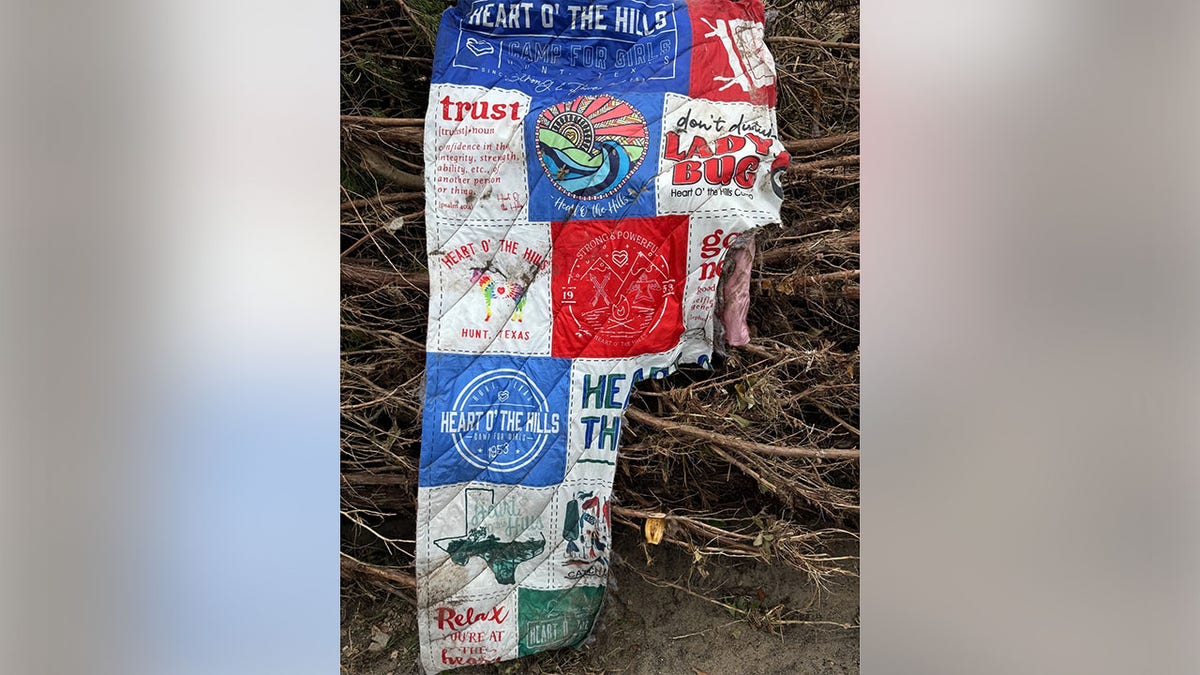NEWYou can now listen to Fox News articles!
From their deteriorated, now unrecognizable, homes, survivors of the devastating flooding earlier this month in Kerrville, Texas, are seeking faith in the face of tragedy as the community rebuilds their livelihoods together.
“We can’t measure the support that we’re trying to offer somebody just by letting them cry on our shoulders,” said Capt. Juan Gomez, III, corps officer for the Salvation Army in Texarkana. “This is not something I can measure for some people.”
This past Friday, Gomez received a call asking if he could step away from his duties in Texarkana, more than 460 miles away, to support those in Kerrville. Without thinking, he agreed and served temporarily as the Emotional Care Officer, providing support to survivors.
HOW BELIEF HELPS US ENDURE NATURAL DISASTERS
“We’re talking about loss of life, we’re talking about loss of homes. So these are people who need to find a new norm, their everyday life has been completely disrupted,” he said.
It is hard to label this as another natural disaster when it is much more than that, as it does not begin to encapsulate the heartbroken families all through Kerrville. One of those families is the Boltons.

Bud Bolton, a Kerrville resident, lost his home. However, it wasn’t until he recalled his fellow neighbors being washed away that he started to choke on his own words, resisting his tears, trying not to let them overtake him, in a Fox Weather report.
Licensed marriage and family therapist Keneth Howard explained how trauma responses could vary. Families who lost a child will have different grieving processes than those who lost their home or a car. However, having faith allows one to push their day a little better.
“Some people have resiliency that will allow them to be anchored into a faith, into a community,” he said. “They’re going to weather that differently than when people have none of those resiliencies, and they’re going to suffer.”
Howard said access to trained professionals, especially in trauma-focused methods like EMDR, can also reduce the risk of PTSD. Moreover, as a Christian, he emphasized that organizations with a religious outlook, such as the Salvation Army, will build strong “interpersonal connections” and lead communities to heal through their trauma.
FAITH BRINGS LIGHT TO DEVASTATED TEXAS TOWN AFTER DEADLY FLOODING DISASTER
Bud Bolton’s son, Ashton, has been reflecting on the tangible relationship that therapeutic and religious outlets have been providing to those in Kerrville and how they intertwine.
“I think it’s good that we’re having therapists reaching out towards us, but I believe that it all dwells within us and our spirituality and being able to handle our problems over to the good Lord,” Ashton said.
Ashton said he feels that if we try to fight our problems alone, we’re not getting anywhere. Just having a shoulder to cry on to release the weight of the grief goes a long way. For him, all it took was a chat with a distant relative and a hug.
“He didn’t allow me to bear the burden that I found. He didn’t allow me to do that alone,” Ashton said.
Gomez can relate to Ashton, because he’s experienced this.
In August 1999, Hurricane Brett took over Texas, cultivating winds that reached over 194 miles per hour and causing $15 million in damage. Gomez, 16, witnessed firsthand the devastation it had on his community. When his grandmother encouraged him to reach out for support, it was his first interaction with an organization like the Salvation Army.
As he was introduced to the world of public service, Gomez was surprised. He expected to be bombarded with the typical “How are you doing?” a half-hearted question that feels impossible to answer after a devastating disaster. But that question was never mentioned. Instead, he was met with a genuineness that inspired him to stay strong.
“They gave me the support I needed to know that I still could have value in my day and to push through and to find a way to make it to the next part of my life,” he said. At the age of sixteen, I knew what it meant to serve.”
Today, he implements that lesson and uses the philosophy that there’s no blanket solution for grief. While some people may need a two-minute conversation, others could need 20. He seeks to meet people at the root of their pain, not with answers, but with presence.
“What we’re trying to do is make sure that in the moment, we’re trying to provide some relief and some efforts because at the end of the day, we understand they still have to go home to whatever they’re now calling home and whatever their new norm is,” Gomez said.
Ashton understands this and sees the potential it can have on Kerville’s current state of brokenness.
“I mean, we just need hospitality between one another and generosity, and that’s almost it,” he said. “Just being a family is all we need.”
Howard explained this sentiment in one word: Shalom. Leaning into the more traditional Hebrew route, it brings about a specific kind of peace that comes from being deeply connected not only to God and ourselves, but to those around us.
“In a time of trauma when Shalom is broken, when relationships are broken, when people are no longer connected in a way that they were, we suffer,” he said. That communal piece, that community piece, that faith piece allows us to live as God created us to live, deeply connected.”
Read the full article here

